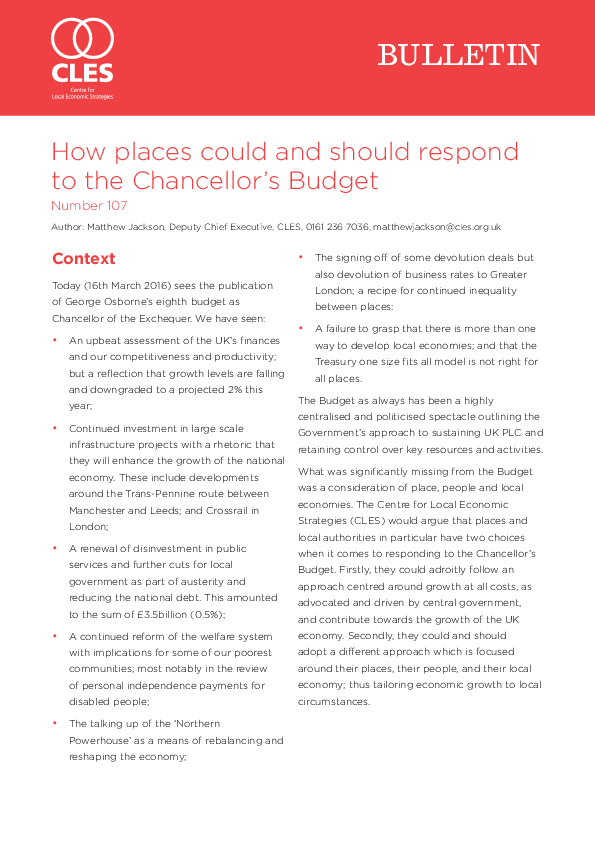CLES welcomes the publication of the Labour Party’s report, Democratising Local Public Services. Its bold plan for a 21st century insourcing offers a powerful corrective to the last four decades of outsourcing, commercialisation and, more recently, unprecedented austerity. It appeals to all who have been working to combat the hollowing out, privatisation and undermining of our public services.
However, there are some changes in emphasis and direction required. CLES agrees that insourcing of local public services should be the default position, and that far too much outsourcing is delivered by those who seek profit and extract wealth at the expense of the public service. Nevertheless, we should be building a resurgence of a public service movement and offer a hand to the many organisations and individuals who, whilst not directly part of local government, are equally passionate about public values, public services and are at the forefront of a movement to develop new forms of democratic and citizen involvement. Democratic institutions such as cooperatives, and participatory democratic forms such as community businesses and social enterprises, offer different ways of realising social, economic and environmental value. These organisations are far removed from the rapacious greed of large outsourcers and as such should have some role in the democratisation, delivery and part ownership of service production.
“We should be building a resurgence of a public service movement and offer a hand to the many organisations and individuals who, whilst not directly part of local government, are equally passionate about public values, public services and are at the forefront of a movement to develop new forms of democratic and citizen involvement.”
So, whilst Labour’s paper provides an excellent correction to years of marketisation and privatisation, a deepening democratic and social revolution for our public services cannot solely begin and end at the town hall. Clearly, back door outsourcing – where small alternative forms of delivery are eventually acquired and gobbled up by big private outsourcers – must be guarded against. However, the democratisation of our local public services must make provision to include, where appropriate, other socially just forms of delivery. Consequently, the debate here is not solely public sector insourcing versus private sector outsourcing.












